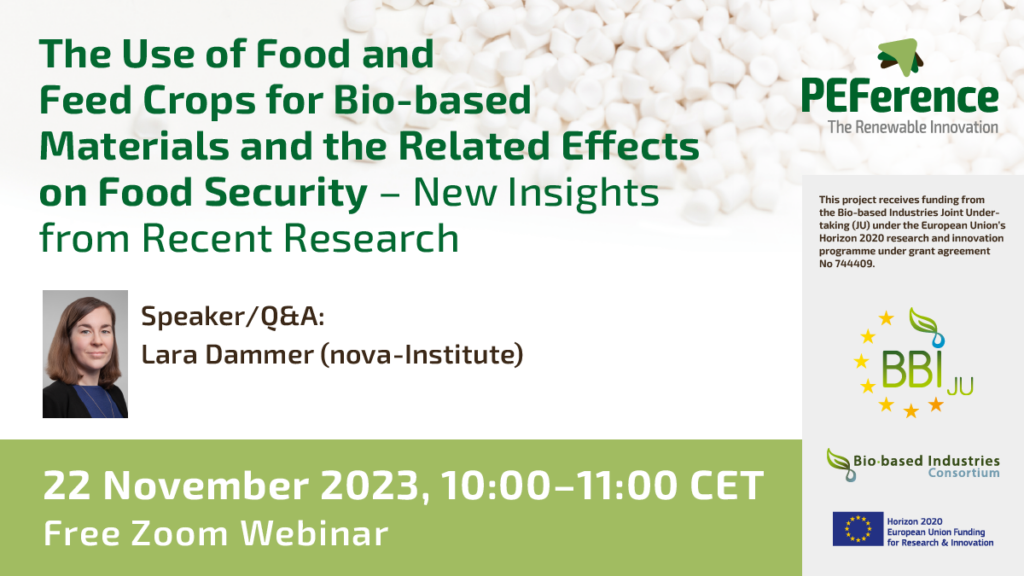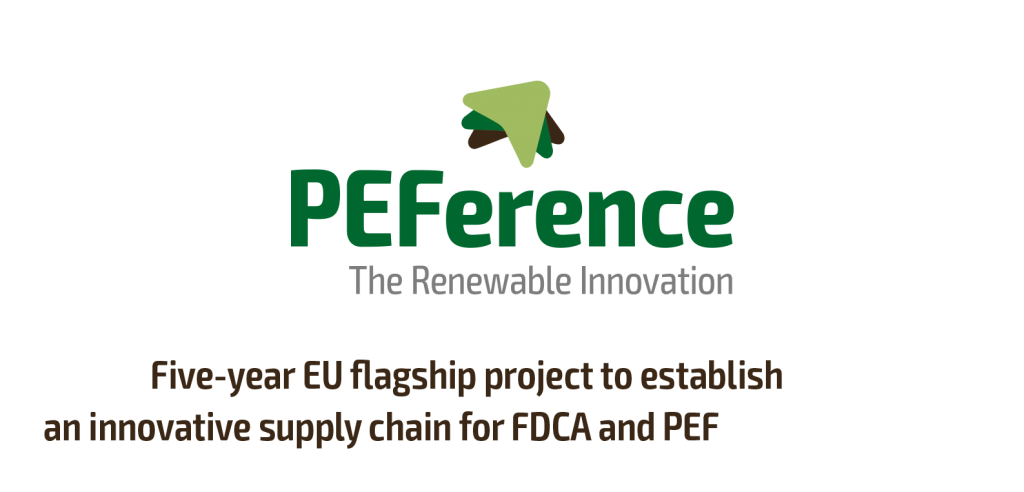
Using plant-based sugars as a resource, leads us to a well-known debate: The competition between food and non-food when it comes to bio-based crops.
“This debate is flawed, subjective and not fully based on evidence. What is detrimental to food security are, according to the World Food Programme in 2023, climate change, conflict, extreme inequalities in wealth distribution, heavy dependence on food imports from industrial countries, overconsumption of meat, losses along the value chain and the impact of the COVID pandemic. Competition between biomass uses is not mentioned among the relevant causes.”
The authors of a recent publication (“The Use of Food and Feed Crops for Bio-based Materials and the Related Effects on Food Security”, available at https://renewable-carbon.eu/publications/?search=1&woof_text=food) argue that using food and feed crops for chemicals and materials will not necessarily exacerbate food insecurity, and in fact has the potential to cause multiple benefits for local and global food security, climate mitigation and other factors. One of the authors is Lara Dammer, Head of the “Economy & Policy” Department at nova-Institute.
In this free webinar, Lara Dammer reveals more about the new scientific insights on crops for bio-based materials. At the end, there will be time for the audience’s questions to be answered live by her. The free registration is possible via https://us02web.zoom.us/webinar/register/5916981433209/WN_qcaAE_SHRUqzqNAibudy-w.

The webinar is part of a webinar series within the PEFerence project. The PEFerence consortium aims to replace a significant share of fossil-based polyesters, such as polyethylene terephthalate (PET), and packaging materials like glass and metal with 100% bio-based furanics polyesters. PEFerence establishes a flagship plant to convert plant-based sugars into FDCA (furandicarboxylic acid), the building block of PEF (polyethylene furanoate): a plant-based, fully recyclable plastic material with superior performance and significantly reduced carbon footprint compared to conventional plastics. PEF can be used in a wide range of applications.
More webinars of this series, recordings and further information on the PEFerence project are available at https://peference.eu.
The PEFerence project receives funding from the Bio-based Industries Joint Undertaking (JU) under the European Union’s Horizon 2020 research and innovation programme under grant agreement No 744409. The JU receives support from the European Union’s Horizon 2020 research and innovation programme and the Bio-based Industries Consortium.
Source
nova-Institute, press release, 2023-10-27.
Supplier
Bio-based Industries (BBI) Joint Undertaking
Horizon 2020
nova-Institut GmbH
Share
Renewable Carbon News – Daily Newsletter
Subscribe to our daily email newsletter – the world's leading newsletter on renewable materials and chemicals









